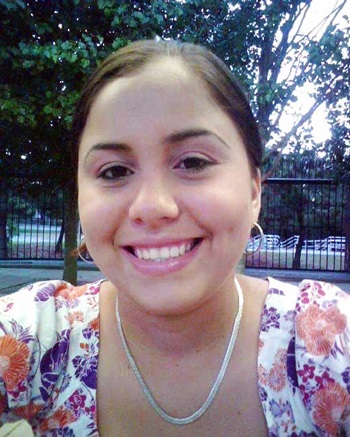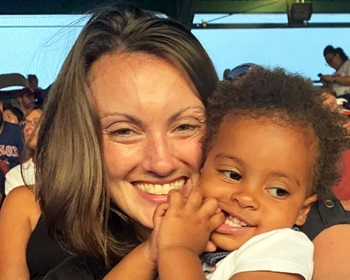Families and Educators Can Power Systemic Change
Harness their observations and experiences to reform the Commonwealth’s child-care subsidy system
January 17, 2022
By Danubia Camargos Silva, Program Officer, Early Childhood
Many people who have devoted decades to advocating for measures that strengthen the early childhood education and care field may cringe each time they hear someone say that the triple pandemic destabilized access to safe, high quality and affordable early child-care services. Struggling for such access has been the reality for many families and certain geographic locations for generations. This reality is not new but has indeed been aggravated by the pandemic, and many more people have become aware of it—and of the vital role that early childhood education and care play in a healthy society and economy. Apart from the disservice we do our youngest residents, with our current early education and care system, Massachusetts loses roughly $2.7 billion a year in lost earnings for employees, additional costs and lower productivity for employers, and in reduced tax revenues, according to a research report called Preparing for Child Care Reform.
The Boston Foundation, in partnership with Massachusetts Taxpayer Foundation and Eastern Bank Foundation, commissioned the report to examine the current child-care subsidy system and how it is operationalized. The primary way the state attempts to close gaps in child-care access is through subsidies to low-income families. However, the report finds that our subsidy system only served 49,000 children a month, on average, in FY 2022, leaving thousands who need assistance without recourse. The report offers many other findings and recommendations for improving the system. This post is a companion to that research and aims to bring to life the data through the specific experiences of families and early childhood educators—in other words, those most directly impacted by the complexities of an essential system that, in theory, should allow them to become economically stable and experience upward financial mobility while nurturing our region’s next generation.
Meet Romeyre Evangelista, a citizen of Brazil who has dedicated the last four years of her life as a family child care (FCC) provider and currently serves families in Worcester. In addition to being an early childhood educator, she is a coach to other early childhood educators, and is a volunteer member of Service Employees International Union (SEIUS). Another inspiring educator is Josmanie Vincent, the owner of Bright Stars Family Day Care in Brockton. Originally from Haiti, she holds a master’s degree in social work and is the mother of two boys, ages four and six. Since the birth of her children, she decided that she wanted to open her own center. Three months ago she began caring for young children. Both educators have had a similar journey and experienced different challenges; nonetheless, they both take pride in their choice to open a home day care.
We also spoke with two mothers who wrestled with the system to find an affordable and safe child-care arrangement to meet their immediate needs. Yaoska Rayo is a single mother and an early childhood educator originally from Nicaragua. She arrived in the United States in 2007 and gave birth to her child Lidia in 2018. Rayo earned a certificate in Early Childhood Education from Bunker Hill Community College in 2020 and became licensed through the Department of Early Education and Care (EEC). She is employed by an early childhood education and care center in Newton, where she works part-time and has enrolled her child. Jessica Lynn was born in the U.S. and gave birth to her daughter, now four years old, in East Africa. Lynn has a B.A. in sociology and women’s studies and is employed full-time at a company that allows her to be self-sufficient. Her daughter currently attends kindergarten at Boston Public Schools.
The Family Perspective
Typically, policies and services are created with positive intent, yet our complicated reality often produces a mismatch between that intent and how families and children experience the services provided. If we are to ensure that policies are effective, resources are optimally spent, and opportunities are created to help children and families achieve their goals and live a life of choice, we must learn from them and design systems with their experiences in mind—and more than that, as a factor in final decisions. In conversation via Zoom and Facebook Messenger, the two families shared perspectives that had a common thread. Yaoska Rayo and Jessica Lynn knew that they wanted their children to have a high-quality experience during their critical young years. Each parent managed to identify care in creative ways. Rayo brought family members to bond and care for her child since she did not qualify for subsidized child care. To her minimum-wage job she added multiple low-wage side hustles in order to pay her bills and support her family—this pushed her just over the cut-off for subsidy. She shared: “I looked for centers several times and I simply could not afford them. During the pandemic I was told that there were funds available, yet when I applied the unresponsiveness ended with a careless message stating that they ran out of funds and no further guidance was offered.”
Lynn, on the other hand, had just returned to the U.S. when her daughter was one year old and did qualify for transitional assistance benefits, but her experience finding and securing a stable early education and care arrangement that met her needs was marked by the ineffectiveness and unresponsiveness of the agencies approving housing and child-care vouchers. As she shared, “I had to put [my daughter] where I found a spot and then find housing as close to the center as possible. The only center I could find with space that accepted vouchers was in Watertown and I was able to find an apartment in Waltham. I had a two-hour commute and had to cut my hours short and miss meetings to be able to get my daughter at the center on time. In addition, I never felt comfortable that my daughter was truly safe at this center. The agency does not assist families in finding suitable child care—it all falls on the caregiver.”
For both mothers the first years of their child’s life were challenging as they jockeyed to identify their support systems. Lynn, in reflecting on her experience “as a White woman and native English speaker who is college educated and tech savvy,” realized that even with these privileges identifying reliable care and going through the approval process for a child-care voucher was stressful. Eventually after months of searching, she was able to find a voucher spot at the Wang YMCA of Chinatown and transferred her daughter. She expressed profound gratitude for the organization, which her daughter attended before enrolling in BPS. The welcoming attitude toward voucher families and easy process to enroll there made a huge difference and Lynn recommends that other centers replicate the Wang YMCA’s engagement practices. Rayo is very satisfied with the opportunity to have her child attend the center where she works, as part of her benefits package. She is looking forward to enrolling her daughter in METCO or a charter school near Newton to keep her daughter close to her at work.
The Provider Perspective
In this field, words and names matter. Professionals choose to call themselves early childhood educators, highlighting the importance of the first years of a child’s life and defining the critical role they play as professionals—alongside the child’s family—in supporting healthy development in those years. Both of the business owner/educators we interviewed also put a lot of time and care into choosing their business names: Mother to Mother (Romeyre Evangelista) and Bright Stars (Josmanie Vincent). Each educator spoke with passion about the significance of her business’s name and the critical role of positive early experiences for children and families. Evangelista chose Mother to Mother to express the trust and assurance most mothers need that their child will be nurtured and cared for when they are away from each other. Vincent shared how rewarding it is to be able to influence a child in positive ways because they are precious, “our bright stars.”
Vincent opened her business in September 2022 and does not accept vouchers. The application process was long and discouraging and she felt that she would not be able to fill a spot in a timely manner to take advantage of the subsidy. She plans to apply eventually, yet it is not a current business priority despite all the benefits that accompany becoming a voucher recipient. Evangelista shared similar frustration with the complex process to accept subsidies, which she navigated by herself speaking limited English at the time. In the end, however, she feels that accepting vouchers helped her secure spots for children that she would otherwise not have been able to serve. She is so passionate about strengthening the child well-being ecosystem that she serves as a coach to new early educators in navigating the process and is an active advocate for systemic reform.
We hear often about the burdensome regulations placed on providers who accept vouchers, such as surprise visits from the food program, EEC, and any other programs that provide support. For her part, Evangelista feels that these regulations and surprise visits strengthen her skills and the quality of services she provides. She aims to elevate the quality of her services with each new regulation with enthusiasm; thus when the agents show up, everything will be according to the standards. She mentions that while it can be overwhelming, the determination to take advantage of the supports available is critical to excel and to transform the experiences of children and families. On the other hand, Vincent, who is outside that subsidized system, hoped to be connected to a support network and mentors that would serve as a learning community to grow together. She gets support in a Facebook Group for Brockton FCCs, has access to trainings and, as a licensed EEC provider, also receives guidance from EEC staff—yet, as a professional eager to further hone her craft, she is looking for more.
Waving a Magic Wand
As we engage in our joint responsibility to transform processes and systems to deliver more equitable services to all, especially to communities of color that have been disproportionately shut out of opportunities to date, it is essential that we humbly listen to the experiences of these communities. With experiences come ideas for solutions, directives for the system to respond and transform. When the interviewed families and educators were asked if they could point to a root cause of current inequities and propose plausible solutions to the early childhood sector, they did not hesitate to share an extensive list:
Family Solutions
- The childcare subsidy application process needs to be accessible and easy to navigate for families and providers in multiple languages.
- Approving agencies need to identify a set of acceptable documentation that would allow immigrant families to secure quality care for their children.
- Eligibility criteria for benefits, such as childcare subsidies, rent assistance, health insurance, and food stamps, should consider household expenses in addition to household income.
- Approve vouchers while a family is searching for employment, so that parents can have reliable childcare arrangements that enable them to attend job interviews.
Educator/Provider Solutions
- The applications to become a provider and to accept vouchers should be streamlined into one.
- Professional development and mentorship should be more readily available and convenient for providers. Furthermore, communication to access and attend conferences should be streamlined.
- More grants and other forms of financial assistance should become available directly to providers to strengthen the ecosystem without deadlines to apply.
Systemic Solutions
- There should be much greater alignment within and across systems of support that allows a family to secure housing, health care, child care and employment. This includes more flexibility on the timeline for families finding housing and child care when receiving subsidies.
- Create a central clearinghouse to help families apply for and secure a child-care slot. It should be a place where providers may advertise open seats and gather feedback from families about their experiences.
- Create more affordable or free before- and after-school program for young children who enter kindergarten




